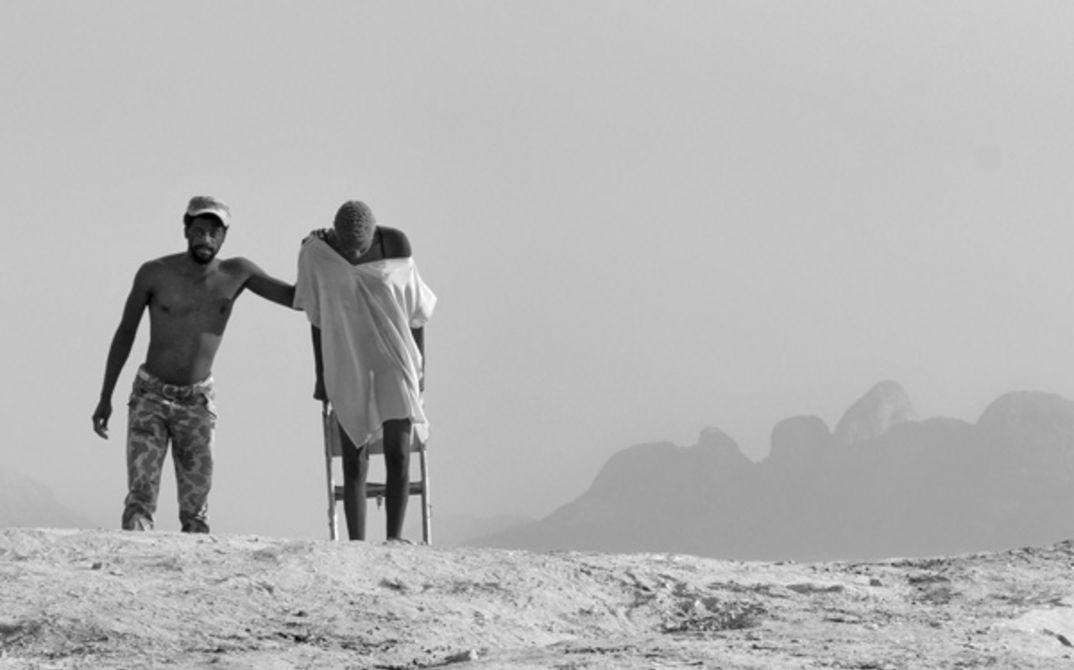90 min. Xitswa, Swahili.
The voiceover says at the outset that a madhouse can be different things at different times: slavery, civil war, a puppet regime. Today, it’s a psychiatric hospital in Maputo, bright walls without, dark corridors within, both accentuated by the crisp black and white. Ernania is a patient there, she coaxes music from her bed so enchanting it could carry you away. When the gate is left open one day, she seizes her chance and a journey begins. But the path doesn’t proceed from A to B, but rather from one beguiling location to another, each flowing into the next with logic of a trance: a recording studio, a cinema full of goats, a boat on a tilt on the mudflats. Ernania was always looking for her husband and son and finds them with ease, but somehow they disappear again at will, just like the other strange objects she stumbles across, the aeroplane fashioned from a hospital bed or the statue of wire. When Ernania and her son stare at the sun, they see the whole continent before them, a terrain, like the film, as rich in references and allusions as a dream. The voiceover also says escape lies in dreams, but that was in the past. Today, it’s in your dreams that they sense you’re there. (James Lattimer)
João Viana was born in Huambo, Angola in 1966. After studying Law at the University of Coimbra in Portugal, he studied film in Porto from 1988 to 1994. Since then, he has worked as a director, screenwriter, producer, and sound technician. Following A batalha de Tabatô (Forum 2013), Our Madness is his second full-length film.
